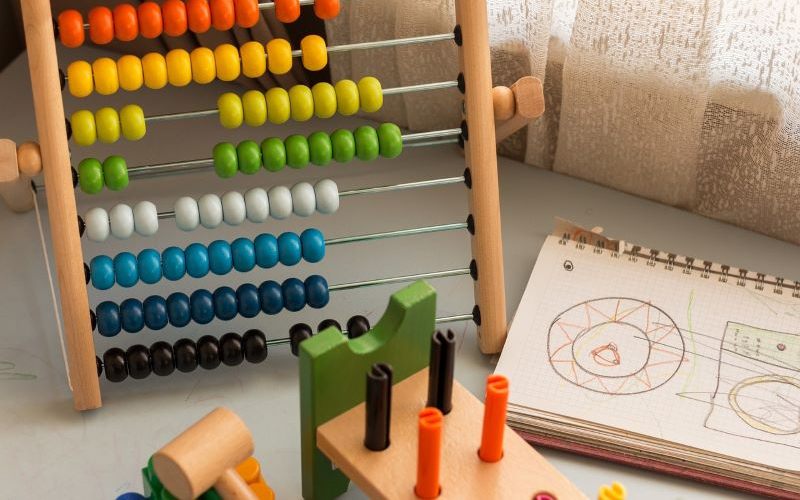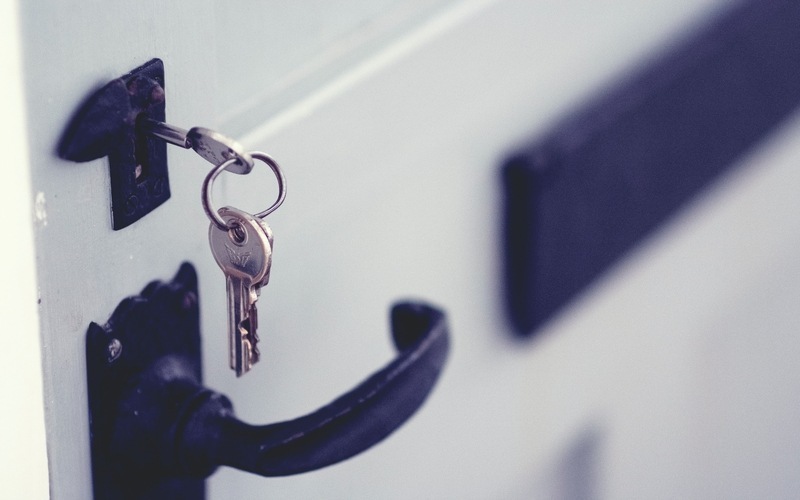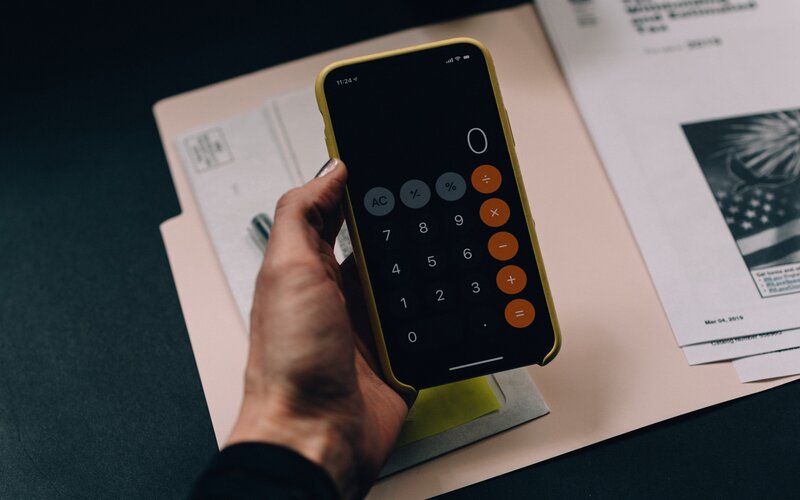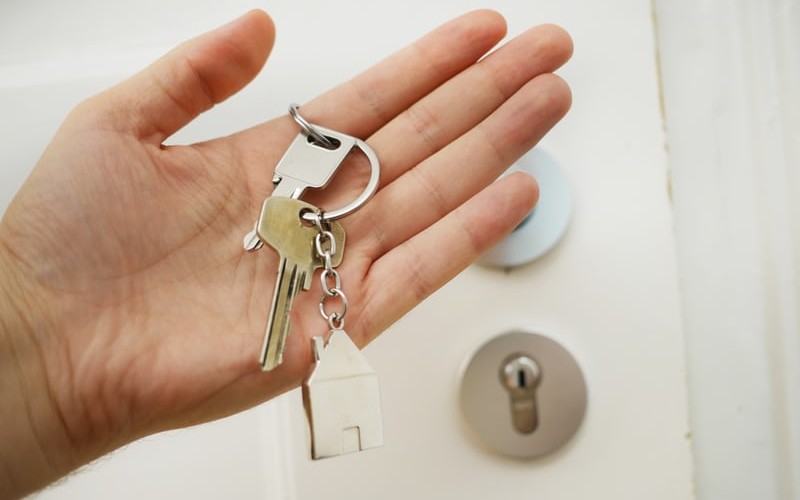Getting a deposit together is often the biggest barrier in the way of aspiring home owners. It can be extremely difficult, so it's entirely understandable to not have given any thought to what the logistics are when you have finally saved enough. Once you've saved up enough, here's what you need to know about how paying a deposit works.
When do you pay the deposit when buying a house?
The type of sale dictates when you will need to pay the deposit.
Paying a house deposit at a private sale
In a private sale (sometimes known as private treaty), the buyer generally needs to pay an initial deposit to the seller or their real estate agent after the property's sale contract has been signed off by both buyer and seller, as specified by the contract. This may not necessarily be the full deposit the buyer wishes to pay (which can be fully paid at settlement) - just a set portion of the sale price, typically 5%. The sale contract lays out the offered price for the property, the date the deposit will be paid, as well as the settlement date. Buyers are often afforded several days to arrange the payment.
Paying a deposit at an auction
For property purchased through an auction, the contract is signed immediately after the fall of the hammer, which means the deposit is expected on the day. Before most auctions, it is standard practice for the seller or their agent to inform prospective buyers what the required upfront deposit is - typically at least 5-10% of the winning bid.
Other upfront costs
Keep in mind that while the seller may be satisfied with a deposit of 5-10%, your lender may charge you Lenders Mortgage Insurance for having a deposit that's under 20% of the property valuation or sale price.
Don't forget also that the deposit does not include the other upfront costs of buying a property. You'll need to have enough funds on top of your deposit to cover things like stamp duty, conveyancing, title registration fees and other expenses.
How to pay a house deposit
Deposits go to the seller, not your lender. There are a few different ways you can make this payment:
-
Cheque: At the time of writing, you can pay for a deposit by writing the buyer a cheque for funds to be drawn from your personal account. Alternatively, the bank could issue a bank cheque, where the funds are drawn from the bank, but this will incur a fee. The Government has announced plans to axe cheques by 2030, so if you are old school you've only got a few years left to familiarise yourself with the alternatives
-
EFT (electronic funds transfer): Deposits can also be paid via direct bank transfer. If your bank has a limit to the size of online transfers, you might need to get in touch to have the limit temporarily raised. It's also very important to be extremely careful when entering the seller's details, as recouping funds sent to the wrong account can be an ordeal.
Read more: What to do if you've transferred to the wrong account
-
Deposit bond: A deposit bond is an instrument issued by an insurer which guarantees the seller that the deposit will be paid on the settlement date. If the buyer is unable to pay the deposit on settlement date, the insurer will cover the seller for the full value of the payment. Deposit bonds are common in off-the-plan purchases and with investors whose funds are tied up in illiquid assets. Some sellers may not accept deposit bonds, since they may need the money to enable the purchase of their next home.
What about cash?
Unfortunately for the Walter Whites and Tony Sopranos of this world, agents aren't likely to accept a bag of physical cash as a deposit. A cash deposit is usually viewed as unnecessarily inconvenient, not to mention pretty suspicious.
Which payment method is best?
The most appropriate method of paying your deposit can vary based on circumstance.
Given auctions require a deposit paid on the day and that banks are closed over the weekend (when most auctions take place), bank cheques or deposit bonds need to be pre-arranged - so buyers need to estimate their maximum bid. If their successful bid is less than this max, it just means there'll be a larger deposit in the property, lowering the LVR (loan-to-valuation ratio).
Personal cheques are comparatively easy to use for a house deposit in an auction, since an exact amount can be written in your chequebook as soon as the winning bid is confirmed. You may need to have ID on you though.
House deposit vs holding deposit
A holding deposit is a portion of the full deposit that buyers pay as part of their offer to signify their serious intent to buy the house. It's different to a conventional deposit - it will normally be far smaller, and the seller is still able to entertain alternative buyers. Holding deposits are typically 0.25% of the offered price, but this can vary between states.
Holding deposits can be fully refunded if the seller accepts a separate offer (i.e. you were gazumped) - it's important to get a written confirmation of this from the agent. There are no refunds for other costs though, such as conveyancing fees, valuation fees, and inspection costs.
Real estate agents often request holding deposits from buyers, but they are not compulsory. While they can make you stand out from other prospective buyers, there's a danger that the agent just wants to use your holding deposit as a bargaining tool to secure a higher offer from another buyer.
What happens after the deposit is paid?
After the contract is signed and the deposit is paid, the money is typically held by the agent in a trust account until the property's settlement day - when the ownership officially passes from the seller to the buyer. Settlement day is also when your lender fronts up the full funds to buy the property, and officially registers the mortgage.
Cooling-off period
Contracts are legally binding after they're signed, although for private property sales there may be a cooling-off period for the buyer. A cooling-off period is the time during which a buyer is allowed to cancel the contract and get their deposit refunded. Ordinarily, there is no cooling-off period for buying at an auction.
If the property's state or territory has a cooling-off period, this begins after the contract is signed by both parties. Correct at the time of writing, these are the different standards around the country regarding cooling-off periods for private property sales:
| State | Cooling-off period | Penalty for cancellation |
|---|---|---|
| NSW | 5 business days | 0.25% of purchase price |
| VIC | 3 business days | 0.20% of purchase price |
| QLD | 5 business days | 0.25% of purchase price |
| WA | None | n/a |
| SA | 2 business days | Up to $100 |
| TAS | None | n/a |
| ACT | 5 business days | 0.25% of purchase price |
| NT | 4 business days | n/a |
Settlement period
After a cooling-off period has passed, property sale contracts become unconditional. Cancelling an unconditional contract can have severe ramifications, so talk to a lawyer before you consider doing this. It's normally a pretty good idea to insist upon a 'subject to finance' clause, which means that the contract is void if you can't get the loan you need. Without this, if you do get rejected for finance you are still obligated to buy the property, and the seller might be able to take legal action against you for subsequent loss, as well as keep your deposit.
Read more: Buying property unconditionally
On settlement day, which can be over a month after the contracts were first signed, the buyer's conveyancer/solicitor meets with the seller's conveyancer/solicitor and a representative from the bank to exchange contracts and finalise the transfer of the remaining sale funds. After that, the buyer will be notified that they can pick up the keys from the real estate office and start paying off that mortgage.
Article originally published by Dominic Beattie, May 2021.
Photo by Ales Krivec on Unsplash
Disclaimers
The entire market was not considered in selecting the above products. Rather, a cut-down portion of the market has been considered. Some providers' products may not be available in all states. To be considered, the product and rate must be clearly published on the product provider's web site. Savings.com.au, yourmortgage.com.au, yourinvestmentpropertymag.com.au, and Performance Drive are part of the Savings Media group. In the interests of full disclosure, the Savings Media Group are associated with the Firstmac Group. To read about how Savings Media Group manages potential conflicts of interest, along with how we get paid, please click through onto the web site links.

Ready, Set, Buy!
Learn everything you need to know about buying property – from choosing the right property and home loan, to the purchasing process, tips to save money and more!
With bonus Q&A sheet and Crossword!



 Denise Raward
Denise Raward

 Harrison Astbury
Harrison Astbury

 Harry O'Sullivan
Harry O'Sullivan

